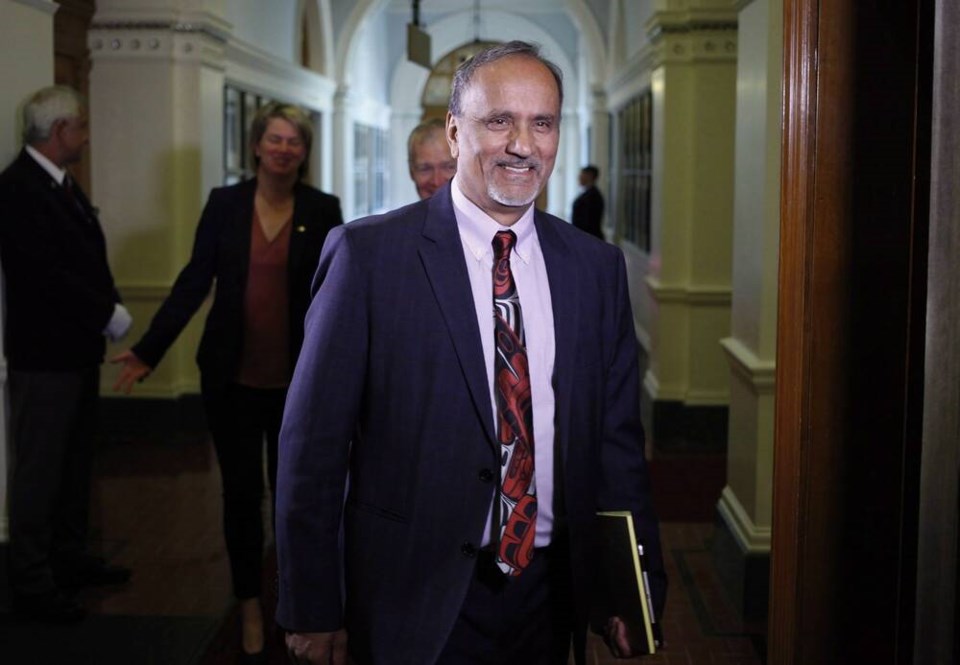The province is asking British Columbians how many days of paid sick leave workers should have access to as it prepares new regulations set to come into effect Jan. 1.
The goal is to provide paid sick leave to just over one million people in B.C. who do not have that benefit. Options include three, five or 10 days of paid leave.
“One of the most critical lessons from the pandemic has been the importance of people staying home when they are sick,” Labour Minister Harry Bains said Wednesday. “No one should have to choose between going to work sick or losing wages.”
An online survey on the options launched Wednesday and runs until Oct. 25. Respondents can make additional comments to help the province shape its new regulations.
Bains said many workers live paycheque to paycheque, and should not have to deal with a gap in pay when they’re sick and stay home. Getting paid is an incentive to stay home when unwell.
Laird Cronk, president of the B.C. Federation of Labour, said 10 days of paid leave would protect workplaces and community health. “Right now, the lack of paid sick leave is putting strain on the health-care system and amplifying inequalities between workers,” he said.
An August report from the federation recommends guaranteed employer-paid sick leave that is seamless, applies to all workers, replaces workers’ full wages and ensures sick workers cannot be fired for staying home.
In May, the province brought in a temporary program offering up to three days of COVID-related paid sick leave for workers who do not already have that benefit. Employers are reimbursed by the province for up to $200 per day per worker. That program ends on Dec. 31.
Asked whether provincial support for employers might continue, Bains said that still has to be determined, based on input from employers and workers.
The new regulations will mark the first time that B.C. has had permanent mandatory paid sick leave.
Along with determining the number of days of coverage, the province has to figure out how to address workers in the gig economy — those without permanent jobs who work independently and on a freelance basis to do individual tasks. That include drivers who deliver takeout meals and provide ride-sharing, as well as some segments of the high-tech sector.
Bains wants gig workers to also be eligible for paid sick leave, but first, the province needs to gain a better understanding of workers in the gig economy and what sectors they are working in.
A survey from Aug. 5 to Sept. 14 of about 26,000 workers and employers found that many employees without paid sick leave regularly went to work when they were sick or returned before they were fully recovered.
Employers and employees both said they are concerned about employees coming to work sick and infecting others.
Approximately half of employees in B.C. do not have employer-paid sick days, according to the province, and those employees are more likely to be in lower-paid jobs.
About 60 per cent of employers do not offer employer-paid sick leave to employees. Of those that do, about 68 per cent have paid leave of between three and 10 days.
About 70 per cent of workers with employer-paid sick leave said they typically do not use all available paid sick days.
Under B.C. employment standards, employees can take up to three days of unpaid leave from work for illness, which will continue.
The government will consider responses to the new survey as well as input from stakeholder meetings, Bains said.
The survey and background information is in several languages. It is at engage.gov.bc.ca/paidsickleave.



